Search titles
Displaying results 31 to 40 of 110.

Indigenous Efflorescence »
Beyond Revitalisation in Sapmi and Ainu Mosir
Publication date: December 2018
Indigenous efflorescence refers to the surprising economic prosperity, demographic increase and cultural renaissance currently found amongst many Indigenous communities around the world. This book moves beyond a more familiar focus on ‘revitalisation’ to situate these developments within their broader political and economic contexts. The materials in this volume also examine the everyday practices and subjectivities of Indigenous efflorescence and how these exist in tension with ongoing colonisation of Indigenous lands, and the destabilising impacts of global neoliberal capitalism. Contributions to this volume include both research articles and shorter case studies, and are drawn from amongst the Ainu and Sami (Saami/Sámi) peoples (in Ainu Mosir in northern Japan, and Sapmi in northern Europe, respectively). This volume will be of use to scholars working on contemporary Indigenous issues, as well as to Indigenous peoples engaged in linguistic and cultural revitalisation, and other aspects of Indigenous efflorescence.

Fijians in Transnational Pentecostal Networks »
Authored by: Karen J. Brison
Publication date: April 2023
In Fijians in Transnational Pentecostal Networks, Karen J. Brison examines the Harvest Ministry, an independent Fijian Pentecostal church that sends Fijian and Papua New Guinean missionaries to East Africa, Southeast Asia, Europe and elsewhere. After studying the ministry’s main church in Suva for several years, Brison visited its missionaries and their local partners in East Africa and Papua New Guinea. The result of those visits, this book provides an unusual insight into Pentecostal churches in the global south, arguing that they seldom produce novel visions of Christianity and world inequality. It also offers new perspectives, by situating Pacific island churches within a global community and by examining social class formation, which is increasingly important in the Pacific.
Pentecostalism has a consistent culture all over the world, but shared themes take on different meanings in the face of local concerns. In Fiji, Pentecostal churches are part of middle-class projects constructing leadership roles and highlighting transnational ties for a growing group of indigenous urban professionals. In Papua New Guinea, church leaders promote the idea that youths with blocked aspirations are tough and humble and therefore make invaluable missionaries. In East Africa, Pentecostal churches are part of a networking strategy that entrepreneurial individuals see as essential to survival. As these local groups each use Pentecostalism to advance their own agenda, they endorse Euro-American racial stereotypes and ideologies about social evolution and progress.
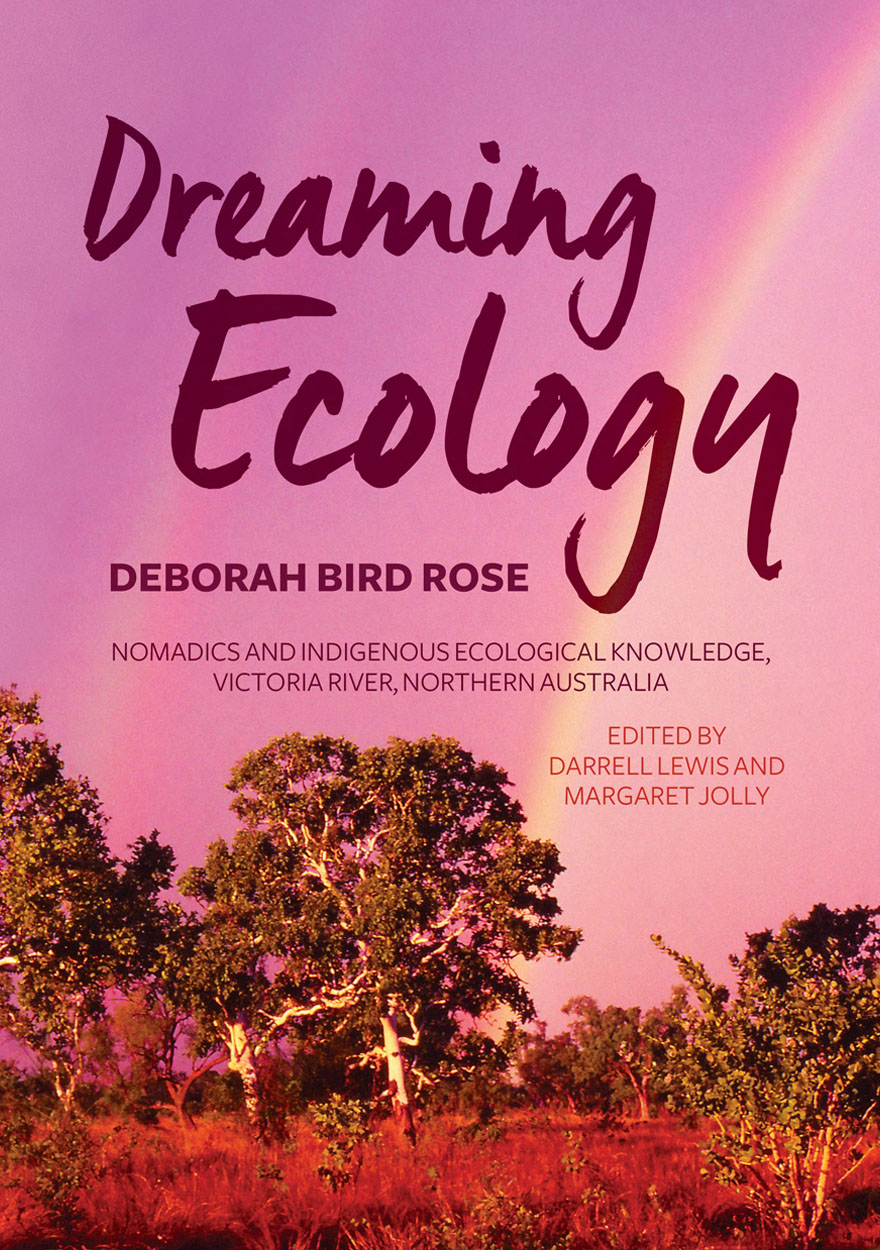
Dreaming Ecology »
Nomadics and Indigenous Ecological Knowledge, Victoria River, Northern Australia
Edited by: Darrell Lewis, Margaret Jolly
Authored by: Deborah Bird Rose
Publication date: 2024
In the author’s own words, Dreaming Ecology ‘explores a holistic understanding of the interconnections of people, country, kinship, creation and the living world within a context of mobility. Implicitly it asks how people lived so sustainably for so long’. It offers a telling critique of the loss of Indigenous life, human and non-human, in the wake of white settler colonialism and this becoming ‘cattle country’. It offers a fresh perspective on nomadics grounded in ‘footwalk epistemology’ and ‘an ethics of return sustained across different species, events, practices and scales’
‘This is the final and most substantial of Debbie’s love letters to the Aboriginal people of the Victoria River Downs. I say this because there is a such a sense of reverence, wonder and respect throughout the book. The introduction of concepts of double-death, footwalk epistemology, wild country, … are not only organising ideas but characterisations arising from what Debbie hears, sees and feels of herself and Aboriginal others … I think of it in terms of love, if love is care, reciprocal respect, deep connectivity and a strong desire to never make less of the people she chose to commit herself to.’
—Richard Davis
‘This book was a pleasure to read, filled with careful description of people, places, and various plants and animals, and insightful analysis of the patterns and commitments that hold them together in the world.’
—Thom van Dooren
Coming soon
Notify me
Grassroots Law in Papua New Guinea »
Edited by: Melissa Demian
Publication date: December 2023
The introduction of village courts in Papua New Guinea in 1975 was an ambitious experiment in providing semi-formal legal access to the country’s overwhelmingly rural population. Nearly 50 years later, the enthusiastic adoption of these courts has had a number of ramifications, some of them unanticipated. Arguably, the village courts have developed and are working exactly as they were supposed to do, adapted by local communities to modes and styles consistent with their own dispute management sensibilities. But with little in the way of state oversight or support, most village courts have become, of necessity, nearly autonomous.
Village courts have also become the blueprint for other modes of dispute management. They overlap with other sources of authority, so the line between what does and does not constitute a ‘court’ is now indistinct in many parts of the country. Rather than casting this issue as a problem for legal development, the contributors to Grassroots Law in Papua New Guinea ask how, under conditions of state withdrawal, people seek to retain an understanding of law that holds out some promise of either keeping the attention of the state or reproducing the state’s authority.
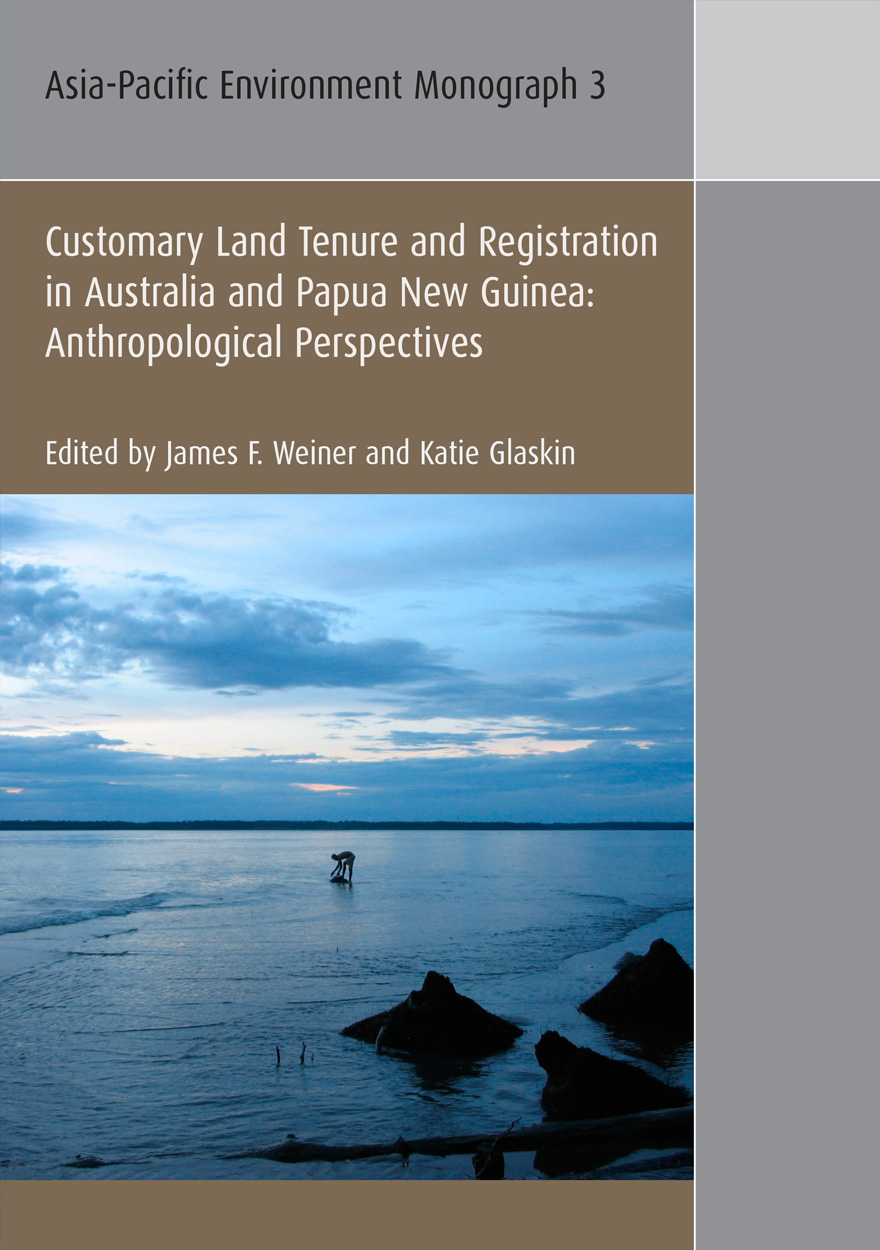
Customary Land Tenure & Registration in Australia and Papua New Guinea »
Anthropological Perspectives
Edited by: James Weiner, Katie Glaskin
Publication date: June 2007
The main theme of this volume is a discussion of the ways in which legal mechanisms, such as the Land Groups Incorporation Act (1974) in PNG, and the Native Title Act (1993) in Australia, do not, as they purport, serve merely to identify and register already-existing customary indigenous landowning groups in these countries. Because the legislation is an integral part of the way in which indigenous people are defined and managed in relation to the State, it serves to elicit particular responses in landowner organisation and self-identification on the part of indigenous people. These pieces of legislation actively contour the progressive evolution of landowner social, territorial and political organisation at all levels in these nation states. The contributors to this volume provide in-depth anthropological case studies of social structural and cultural transformations engendered by the confrontation between states, developers and indigenous communities over rights to customarily owned land.
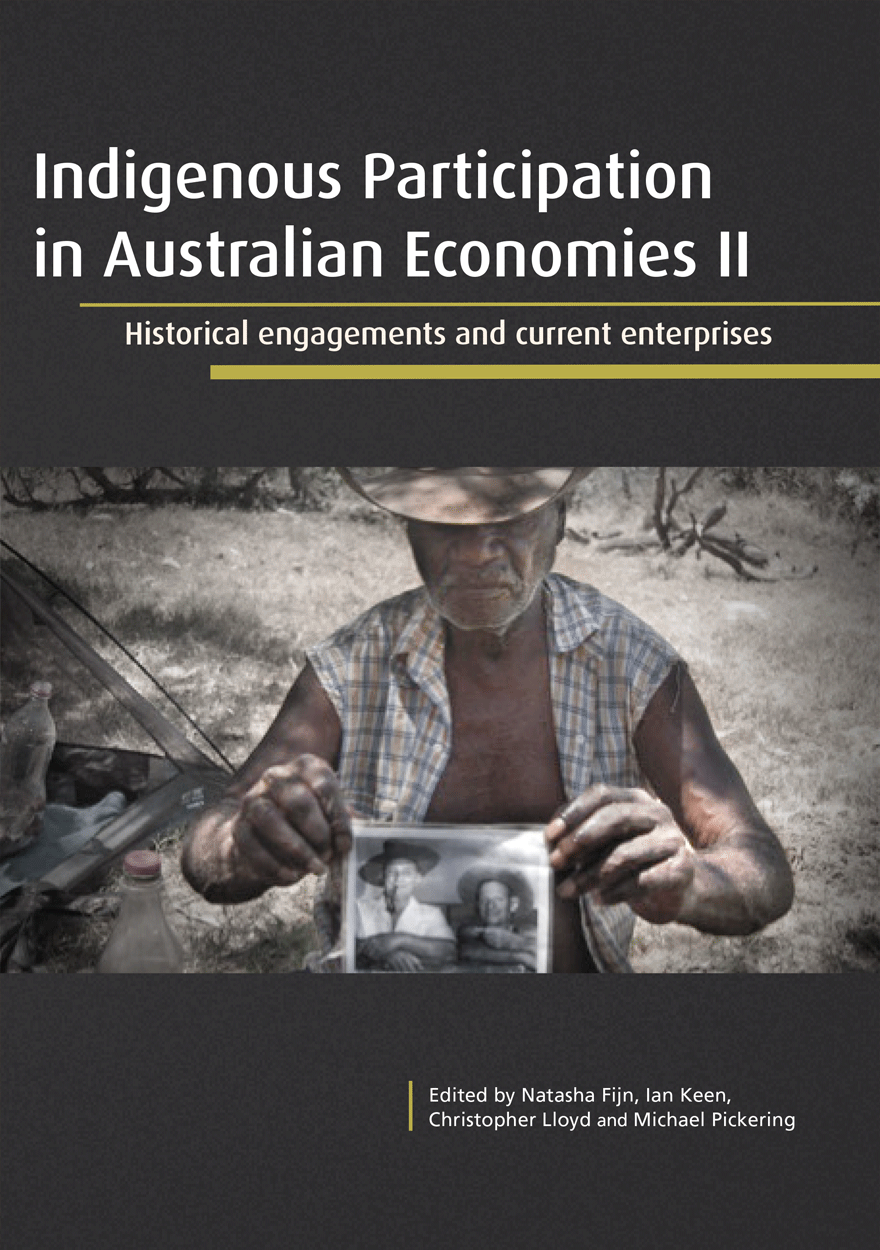
Indigenous Participation in Australian Economies II »
Historical engagements and current enterprises
Publication date: July 2012
This is the second volume to emerge from a project on Indigenous participation in the Australian economy, funded by an Australian Research Council (ARC) Linkage Grant, and involving the cooperation of the School of Archaeology and Anthropology at The Australian National University and the National Museum of Australia. The Chief Investigators were Ian Keen, Chris Lloyd, Anthony Redmond, the Partner Investigator was Mike Pickering, Fiona Skyring was an associate researcher on the project, and Natasha Fijn was research assistant. The present volume arises out of a conference in Canberra on Indigenous Participation in Australian Economies at the National Museum of Australia on 9–10 November 2009, which attracted more than thirty presenters. The diverse themes included histories of economic relations, the role of camels and dingoes in Indigenous–settler relations, material culture and the economy, the economies of communities from missions and stations to fringe camps and towns, the transitions from payment-in-kind to wage economies and Community Development Employment Projects, the issue of unpaid and stolen wages, local enterprises, and conflicts over development. Sixteen of those papers have been developed as chapters in this volume, together with a foreword by Professor Jon Altman. This book comprises a companion volume to Indigenous Participation in Australian Economies: Historical and Anthropological Perspectives, published by ANU Press in 2010.

Macassan History and Heritage »
Journeys, Encounters and Influences
Edited by: Marshall Clark, Sally K. May
Publication date: June 2013
This book presents inter-disciplinary perspectives on the maritime journeys of the Macassan trepangers who sailed in fleets of wooden sailing vessels known as praus from the port city of Makassar in southern Sulawesi to the northern Australian coastline. These voyages date back to at least the 1700s and there is new evidence to suggest that the Macassan praus were visiting northern Australia even earlier. This book examines the Macassan journeys to and from Australia, their encounters with Indigenous communities in the north, as well as the ongoing social and cultural impact of these connections, both in Indonesia and Australia.
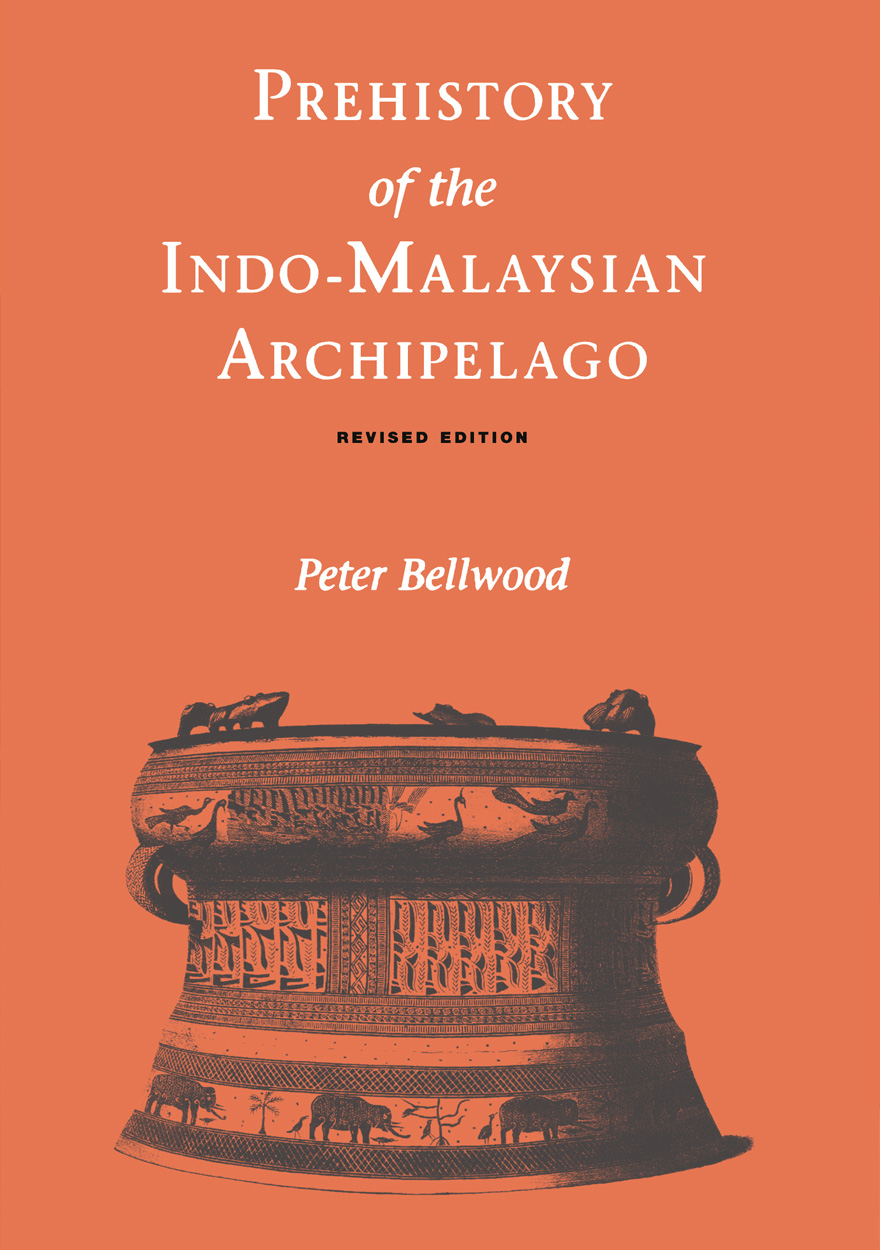
Prehistory of the Indo-Malaysian Archipelago »
Revised Edition
Authored by: Peter Bellwood
Publication date: March 2007
Since its publication in 1985, Peter Bellwood’s Prehistory of the Indo-Malaysian Archipelago has been hailed as the sole authoritative work on the subject by the leading expert in the field. Now that work has been fully revised and includes a complete up-to-date summary of the archaeology of the region (and relevant neighboring areas of China and Oceania), as well as a comprehensive discussion of new and important issues (such as the “Eve-Garden of Eden” hypothesis and its relevance to the Indo-Malaysian region) and recent advances in macrofamily linguistic classification.
Moving north to south from northern Peninsular Malaysia to Timor and west to east from Sumatra to the Moluccas, Bellwood describes human prehistory from initial hominid settlement more than one million years ago to the eve of historical Hindu-Buddhist and Islamic cultures of the region. The archaeological record provides the central focus, but chapters also incorporate essential information from the paleoenvironmental sciences, biological anthropology, linguistics, and social anthropology. Bellwood approaches questions about past cultural and biological developments in the region from a multidisciplinary perspective. Historical issues given extended treatment include the significance of the Homo erectus populations of Java, the dispersal of the present Austronesian-speaking peoples of the region within the past 4,000 years, and the spread of metallurgy since 500 B.C. Bellwood also discusses relationships between the prehistoric populations of the archipelago and those of neighboring regions such as Australia, New Guinea, and mainland Asia.
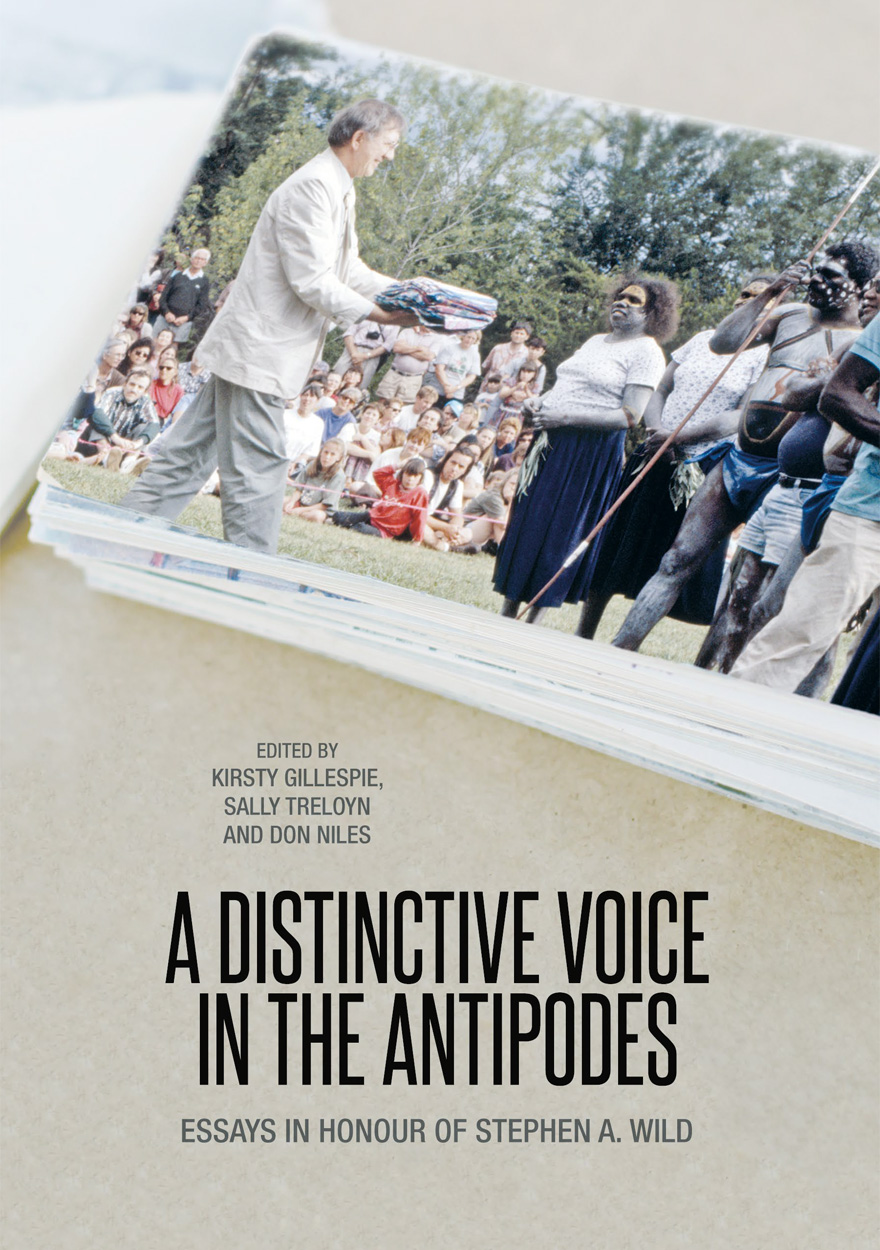
A Distinctive Voice in the Antipodes »
Essays in Honour of Stephen A. Wild
Publication date: July 2017
This volume of essays honours the life and work of Stephen A. Wild, one of Australia’s leading ethnomusicologists. Born in Western Australia, Wild studied at Indiana University in the USA before returning to Australia to pursue a lifelong career with Indigenous Australian music.
As researcher, teacher, and administrator, Wild’s work has impacted generations of scholars around the world, leading him to be described as ‘a great facilitator and a scholar who serves humanity through music’ by Andrée Grau, Professor of the Anthropology of Dance at University of Roehampton, London.
Focusing on the music of Aboriginal Australia and the Pacific Islands, and the concerns of archiving and academia, the essays within are authored by peers, colleagues, and former students of Wild. Most of the authors are members of the Study Group on Music and Dance of Oceania of the International Council for Traditional Music, an organisation that has also played an important role in Wild’s life and development as a scholar of international standing.
Ranging in scope from the musicological to the anthropological—from technical musical analyses to observations of the sociocultural context of music—these essays reflect not only on the varied and cross-disciplinary nature of Wild’s work, but on the many facets of ethnomusicology today.
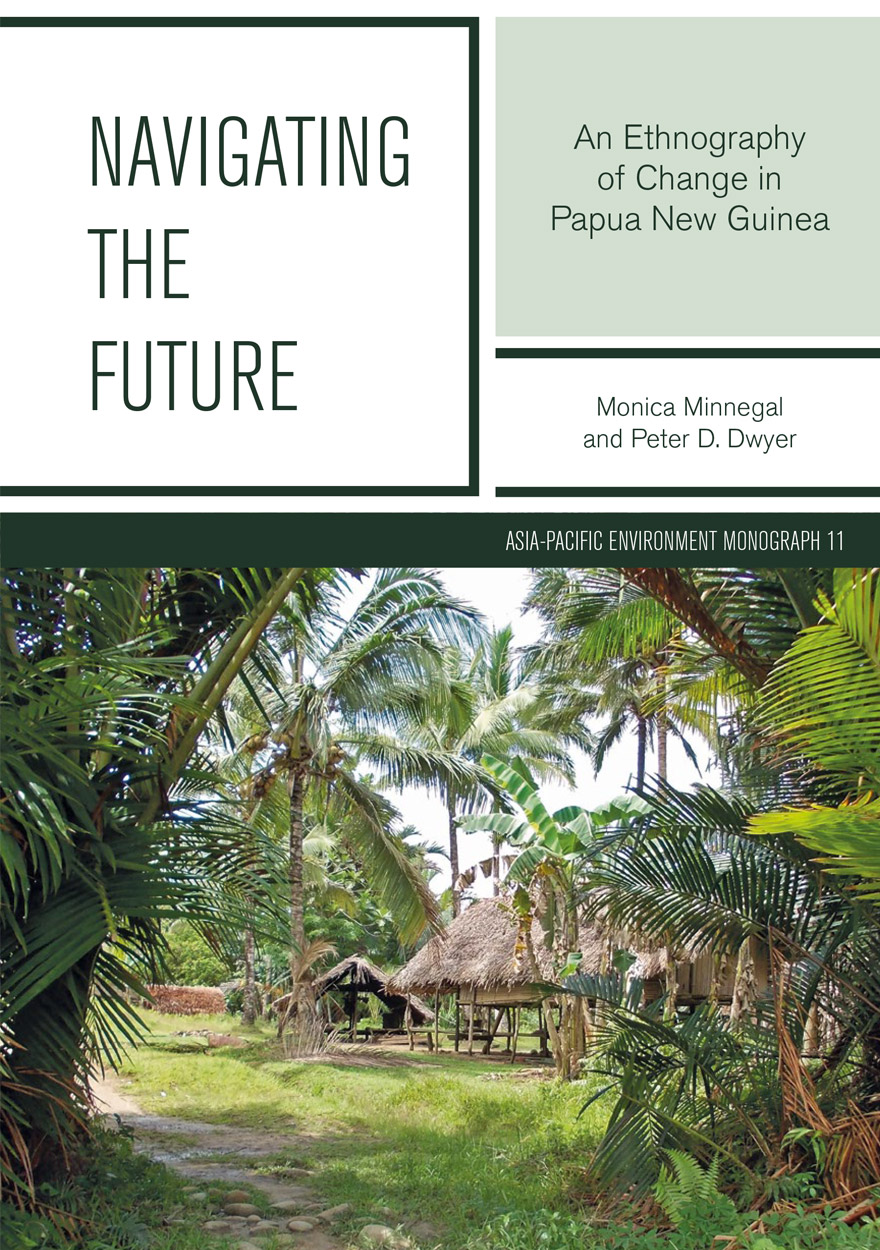
Navigating the Future »
An Ethnography of Change in Papua New Guinea
Authored by: Monica Minnegal, Peter D. Dwyer
Publication date: June 2017
Navigating the Future draws on long-term ethnographic fieldwork with Kubo people and their neighbours, in a remote area of Papua New Guinea, to explore how worlds are reconfigured as people become increasingly conscious of, and seek to draw into their own lives, wealth and power that had previously lain beyond their horizons. In the context of a major resource extraction project—the Papua New Guinea Liquefied Natural Gas (PNG LNG) Project–taking shape in the mountains to the north, the people in this area are actively reimagining their social world. This book describes changes in practice that result, tracing shifts in the ways people relate to the land, to each other and to outsiders, and the histories of engagement that frame those changes. Inequalities are emerging between individuals in access to paid work, between groups in potential for claiming future royalties, and between generations in access to information. As people at the village of Suabi strive to make themselves visible to the state and to petroleum companies, as legal entities entitled to receive benefits from the PNG LNG Project, they are drawing new boundaries around sets of people and around land and declaring hierarchical relationships between groups that did not exist before. They are struggling to make sense of a bureaucracy that is foreign to them, in a place where the state currently has minimal presence. A primary concern of Navigating the Future is with the processes through which these changes have emerged, as people seek to imagine—and work to bring about—a radically different future for themselves while simultaneously reimagining their own past in ways that validate those endeavours.



